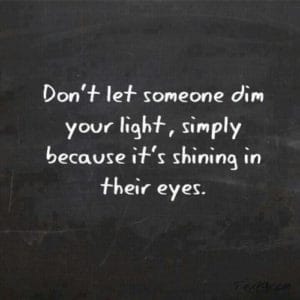When we come to recovery, one of the toughest realizations is the discovery of family dysfunction and the work it takes to heal those relationships. Sometimes when we heal, our families don’t heal with us. Being the addict or alcoholic or person suffering from mental illness typically makes us the focal point within the dysfunctional family. So when the healing process begins, it’s not uncommon for a family to try and divert their loved one back to their old behaviors or at least to their old emotional responses. It is what’s familiar, after all. It’s what allows the family to take the focus away from what’s happening within the family dynamic and redirect it onto the “problem.”
How often do we drink, use, starve, self-harm, et cetera, in an attempt to “manage” our discomfort and disconnection within our families? It’s not uncommon for these behaviors to be a direct response to a family’s dysfunction. Sometimes a family will continue to batter and abuse, or enable, all of which evidence their own negative interactions. In this case, the dysfunctional paradigm of the unhealthy family dynamic hasn’t changed, even though you may have. In recovery, we begin to set healthy boundaries with those who persistently spew harmful behaviors our way, but no one says creating those boundaries would be easy. It takes consistent and ardent work coupled with attention to our own reactions to our environments to effect real change.
We work with families all the time at Visions. Many, if not most of our families jump on board and get involved in Al-Anon, make efforts to shift their actions and parenting styles, actively go into therapy, and accept help and suggestions from our clinical staff. They honestly do their best to mend the familial fabric and understand that recovery is a family process. Still, there are some whose own dysfunction prevents the acceptance of help and promotes a culture of denial. In those cases, it’s imperative that boundaries are established and self-care is modeled effectively. In doing this, we allow our light to shine through; we allow our healing to flourish; we allow people into our lives that are safe, kind, and supportive. Being in recovery is a process, and within that process, our internal light gets brighter and stronger.
Visions offers family groups, parent groups, and multiple teen groups in our various facilities. These groups support the individual and their needs as well as the family and its needs. The wounds created by addiction and mental health can and do heal. Therapeutic groups provide a safe container for that process to begin. They build trust and encourage peer support, something urgently necessary in treatment and recovery. We really can’t figure this stuff out for ourselves! It takes a community of clinical and peer support, love, and patience, and healthy boundaries.
Originally posted on February 27, 2013 @ 8:29 am





